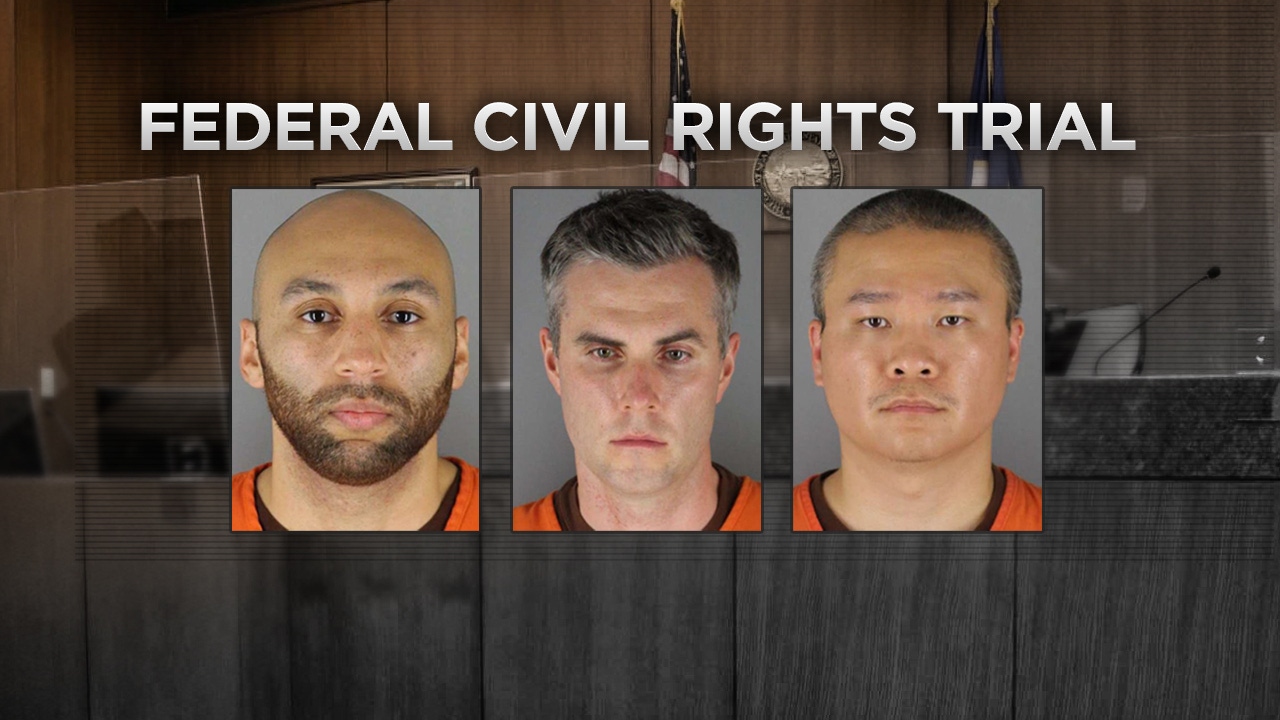1st day of jury deliberations in former MPD officer trial, legal analyst weighs in
At the federal courthouse in downtown St. Paul, 12 jurors are now reviewing evidence and testimony from the month-long trial of three former Minneapolis Police officers charged with violating George Floyd’s civil rights.
[anvplayer video=”5091886″ station=”998122″]
Tou Thao, J. Alexander Kueng and Thomas Lane are all accused of seeing George Floyd lying on the ground, in clear need of medical care, and willfully failing to aid him. According to the indictment, that resulted in bodily injury and the death of George Floyd. Thao and Kueng are also charged with failing to intervene to stop Chauvin’s use of unreasonable force.
Judge Paul Magnuson reminded the jury Wednesday morning that the indictment is not evidence. He explained each count the former officers face as he gave the jury its instructions.
The judge told jurors as they review the case, “You may believe all of what a witness says, part of it, or none of it.” He also advised them, “Don’t allow sympathy or prejudice to influence you.”
The jury did not ask the court any questions during its first day of deliberations.
“When the jury comes back and announces its verdict, it’s going to have to say specifically for each charge and each officer: guilty or not guilty,” said Mark Osler, Robert and Marion Short Distinguished Chair in Law.

Osler expects training could be a sticking point for jurors.
“I think part of it is the judge’s instructions pointed towards training and looking carefully at what training they received,” he said. “Were they trained enough they should’ve known they had a duty to intervene? Clearly, the sides are pulling opposite ways on that and that’s something that I think is really going to come front and center as the jury deliberates.
Eight women and four men are on the panel. They’re from more than half a dozen Minnesota counties, from Washington County to Jackson County. The jurors have a range of professions, including employment at an architecture firm, a department store, foodservice and computer programming. All of the jurors are white.
“We do know that who’s left on the jury still does represent people beyond the Twin Cities, extending out into Greater Minnesota and that will make for probably a broader discussion of the issues as they go forward,” said Osler.
Magnuson signed an order Wednesday sealing juror information for 10 years. He pointed to, in part, “the significant public attention this trial has generated.”
“Each federal district sets up its own rules about things like releasing jurors’ names,” said Osler. “It’s not like State of Minnesota courts where we have one rule that covers the whole state that tends to push in favor of releasing names. In federal court, we usually see it cutting the other way. In fact, the local rule here says unless there is a judicial order releasing the names, they’re going to be kept private.”
Osler added, “I think that the 10 years is long enough out that probably tempers will have faded if such a thing results from this trial and it still will serve the historical record if there needs to be one, that this was a really important case.”